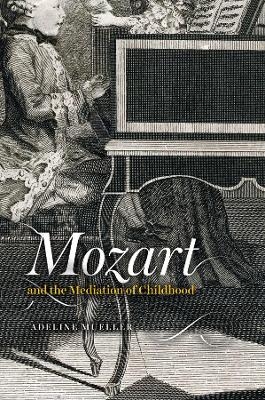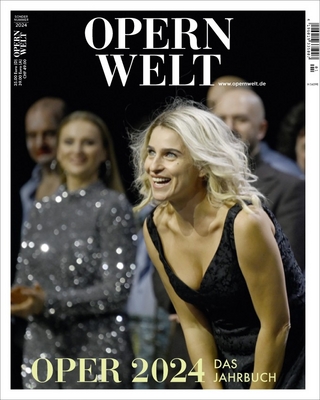
Mozart and the Mediation of Childhood
Seiten
2021
University of Chicago Press (Verlag)
978-0-226-62966-7 (ISBN)
University of Chicago Press (Verlag)
978-0-226-62966-7 (ISBN)
The story of Wolfgang Amadeus Mozart’s precocity is so familiar as to be taken for granted. In scholarship and popular culture, Mozart the Wunderkind is often seen as belonging to a category of childhood all by himself. But treating the young composer as an anomaly risks minimizing his impact. In this book, Adeline Mueller examines how Mozart shaped the social and cultural reevaluation of childhood during the Austrian Enlightenment. Whether in a juvenile sonata printed with his age on the title page, a concerto for a father and daughter, a lullaby, a musical dice game, or a mass for the consecration of an orphanage church, Mozart’s music and persona transformed attitudes toward children’s agency, intellectual capacity, relationships with family and friends, political and economic value, work, school, and leisure time.
Thousands of children across the Habsburg Monarchy were affected by the Salzburg prodigy and the idea he embodied: that childhood itself could be packaged, consumed, deployed, “performed”—in short, mediated—through music. This book builds upon a new understanding of the history of childhood as dynamic and reciprocal, rather than a mere projection or fantasy—as something mediated not just through texts, images, and objects but also through actions. Drawing on a range of evidence, from children’s periodicals to Habsburg court edicts and spurious Mozart prints, Mueller shows that while we need the history of childhood to help us understand Mozart, we also need Mozart to help us understand the history of childhood.
Thousands of children across the Habsburg Monarchy were affected by the Salzburg prodigy and the idea he embodied: that childhood itself could be packaged, consumed, deployed, “performed”—in short, mediated—through music. This book builds upon a new understanding of the history of childhood as dynamic and reciprocal, rather than a mere projection or fantasy—as something mediated not just through texts, images, and objects but also through actions. Drawing on a range of evidence, from children’s periodicals to Habsburg court edicts and spurious Mozart prints, Mueller shows that while we need the history of childhood to help us understand Mozart, we also need Mozart to help us understand the history of childhood.
Adeline Mueller is assistant professor of music at Mount Holyoke College.
List of Abbreviations
List of Figures and Musical Examples
Introduction
Chapter 1. Precocious in Print
Chapter 2. Music, Philanthropy, and the Industrious Child
Chapter 3. Acting Like Children
Chapter 4. Kinderlieder and the Work of Play
Chapter 5. Cadences of the Childlike
Chapter 6. Toying with Mozart
Acknowledgments
Notes
Bibliography
Index
| Erscheinungsdatum | 19.07.2021 |
|---|---|
| Reihe/Serie | New Material Histories of Music |
| Zusatzinfo | 36 halftones, 9 line drawings |
| Sprache | englisch |
| Maße | 152 x 229 mm |
| Gewicht | 540 g |
| Themenwelt | Kunst / Musik / Theater ► Musik ► Klassik / Oper / Musical |
| ISBN-10 | 0-226-62966-X / 022662966X |
| ISBN-13 | 978-0-226-62966-7 / 9780226629667 |
| Zustand | Neuware |
| Informationen gemäß Produktsicherheitsverordnung (GPSR) | |
| Haben Sie eine Frage zum Produkt? |
Mehr entdecken
aus dem Bereich
aus dem Bereich
Buch | Softcover (2024)
Der Theaterverlag - Friedrich Berlin
CHF 48,95
Mozart und der Abschied von der Aufklärung
Buch | Hardcover (2024)
C.H.Beck (Verlag)
CHF 41,90


